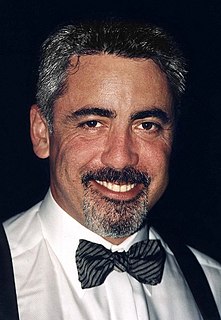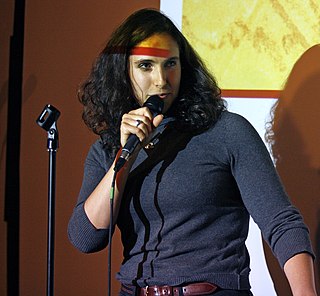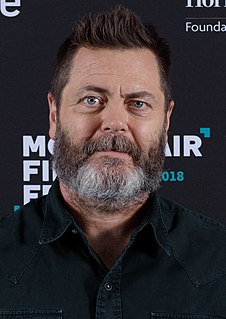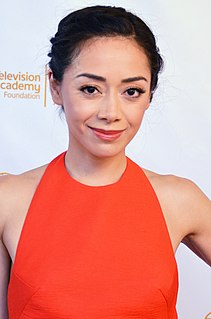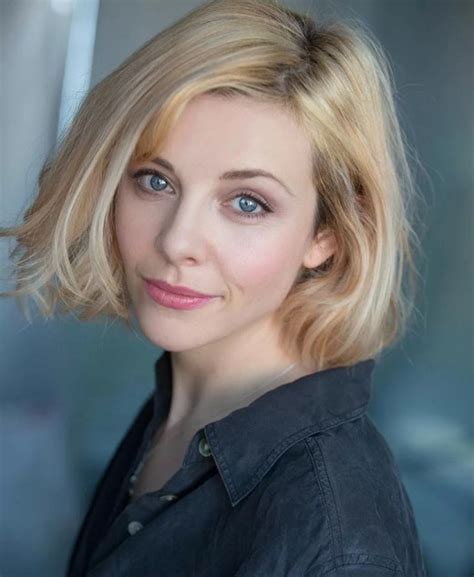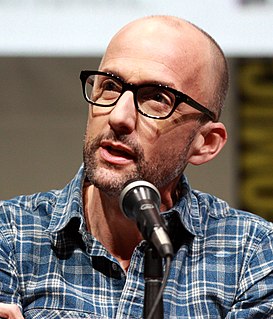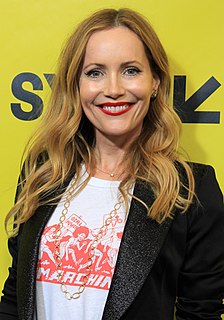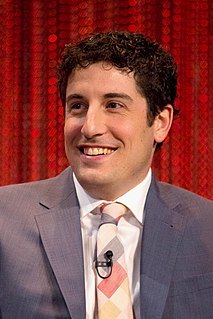A Quote by Jimmy O. Yang
You know something like 'Patriots Day' that I did a few years ago, which is a drama, is very different than comedy. That was super rewarding. I want to do more of that and also my own writing.
Related Quotes
Comedy is more difficult than drama. I think it's really difficult to make someone laugh because people have very different comedic sensibilities. In drama, you can get away with being a great actor and surrounded by great actors and having good writing. But in comedy you have to listen and you have to perform with a certain rhythm, because if you don't, it's like playing a wrong note in the orchestra and you can hear the off key and it will fall flat and you won't get that instant response.
Horror is like comedy. Woody Allen's comedy is going to be very different from Ben Stiller's comedy which is going to be different from Adam Sandler's comedy which is going to be different from Judd Apatow's comedy. They're all comedy, but they're all very different types and you can enjoy all of them. Horror is the same way.
I never intended to have a career as a journalist, writing about people who make movies. I did it as something that was really rewarding to do, given the opportunity to express myself about something I cared about, and also to learn a lot by watching filmmakers I admired. In a sense, it was my film school. After doing it for a few years, I decided that the time had come to get it together and do some work of my own. Even for a cheap movie, you need film stock and equipment and actors. Whereas to write, all you need is paper and an idea, so I felt that writing might be my stepping stone.
As a writer, I haven't delved into dramatic writing. As an actor, I could always, even more so than comedy, do drama. When you do your comedy and your drama, your acting style doesn't change. If it's a comedy, the situations and the characters might be a little funnier, but you're just trying to be honest.
I think a comedian has a more specific job. Whereas a musician can fall into different categories, you know, of making background music or doing a soundtrack or wanting to be in a band or writing the song, or writing your own songs. And then comedy is a very black and white thing. You want to make people happy.
And writing comedy and it really taught me how to kind of like craft jokes, it sounds like weird but really focus on crafting jokes and trying to make the writing really sharp. At the same time I did improv comedy in college, and that helped with understanding the performance aspect of comedy, you know, because it's different when you improv something vs. when you write it and they're both kind of part of my process now.
For me, a lot of Discipline was very personal writing, like writing through and working out being inside this gendered body and also the compulsions of the body, the muting of the mind as driven by the body. My father had died some years ago so he haunts the book too, just floats through it ghost-like. But, the writing of every book is different for me. They are so like living creatures, these books, so I don't know what's carried over into the writing of the next things - except maybe that I'm best when I make my writing practice a routine.
Comedy is hard to do, and I don't know why it doesn't have its own category in awards. I don't understand why people think it's harder to do drama than it is to do comedy. It doesn't get respect. It's hard. It's really hard. It would be more gratifying to get something for a comedy, because it doesn't happen much or at all.
I always did drawings. Then, few years ago, I started working with large-scale paper. It's an extension of performance, because the pieces are the size of my full body. I use pencils, acrylic, watercolors, and I also incorporate textual messages. I did most of them in a monastery in Spain at the top of a mountain. I lived there a bit like a monk. I meditate quite often. At night, which is when I like to work, I like to think I have conversations with Francisco Goya. He died so many years ago, of course, but somehow, his ghost is always with me.
I'd like to do more dramatic roles but I would never give up comedy to do it. I've seen a lot of actors that do a complete 180 degrees and say: "I'm done with comedy, I want to be taken seriously." I take my comedy very seriously and I want to be taken seriously because of my comedy. I think it's more fun for me. I enjoy laughing and attempting to make people laugh. So I'd like to do more drama but I'd never do the 180 thing.

